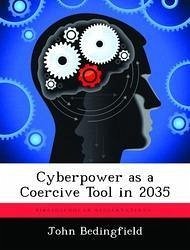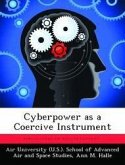Although coercion by cyberpower alone may be limited today, if appropriate steps are taken, by the year 2035 cyberpower will be a useful coercive instrument of power. This essay explores the reasons why cyberpower is not coercive today, and ways it may become more coercive in the future. The cyber attacks employed against Estonia and Iran provide evidence cyberpower is currently not coercive, as do today's unique cyber attributes. Subsequently, many experts criticize the coercive ability of cyber tools, arguing the ability to quickly deploy countermeasures to a cyber attack, imprecise cyber tools, and lack of attribution; are all reasons why cyber may not be coercive. However, as technology continues to improve and proliferate, and cyber tools are further explored, just as in the early days of airpower, cyberpower may provide increasingly precise tools. Furthermore, increased attribution and weapons providing repeatable and reliable effects may emerge from a concerted investment effort. Therefore, the essay concludes, the United States should invest in forensics, repeatable tools, defense, and cyber models, simulations, and analysis to ensure dominance is maintained as cyber progresses toward a more coercive power.
Hinweis: Dieser Artikel kann nur an eine deutsche Lieferadresse ausgeliefert werden.
Hinweis: Dieser Artikel kann nur an eine deutsche Lieferadresse ausgeliefert werden.








